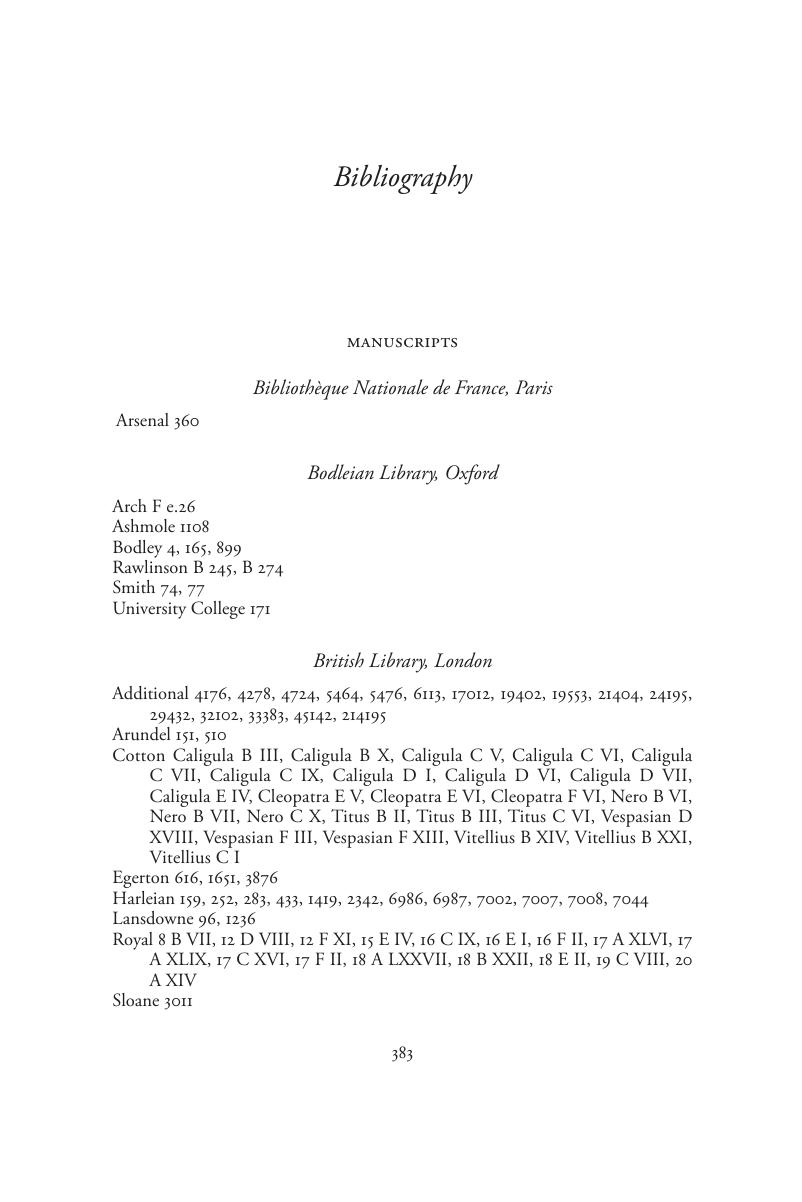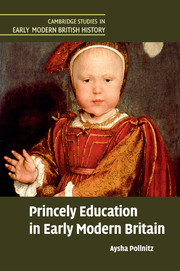Book contents
- Princely Education in Early Modern Britain
- Cambridge Studies in Early Modern British History
- Princely Education in Early Modern Britain
- Copyright page
- Dedication
- Contents
- Book part
- Glossary
- Introduction
- Chapter 1 ‘Thys boke is myne’: how humanism changed the English royal schoolroom, 1422–1509
- Chapter 2 Chivalry, ambition andbonae litterae, 1509–1533
- Chapter 3 Erasmus’ Christian prince and Henry VIII’s royal supremacy
- Chapter 4 Educating Edward VI: from Erasmus and godly kingship to Machiavelli
- Chapter 5 Fortune’s wheel and the education of early modern British queens
- Chapter 6 Education and royal resistance: George Buchanan and James VI and I
- Chapter 7 Britain’s lost Renaissance? The Stuart princes
- Epilogue
- Bibliography
- Index
- References
Bibliography
Published online by Cambridge University Press: 05 June 2015
- Princely Education in Early Modern Britain
- Cambridge Studies in Early Modern British History
- Princely Education in Early Modern Britain
- Copyright page
- Dedication
- Contents
- Book part
- Glossary
- Introduction
- Chapter 1 ‘Thys boke is myne’: how humanism changed the English royal schoolroom, 1422–1509
- Chapter 2 Chivalry, ambition andbonae litterae, 1509–1533
- Chapter 3 Erasmus’ Christian prince and Henry VIII’s royal supremacy
- Chapter 4 Educating Edward VI: from Erasmus and godly kingship to Machiavelli
- Chapter 5 Fortune’s wheel and the education of early modern British queens
- Chapter 6 Education and royal resistance: George Buchanan and James VI and I
- Chapter 7 Britain’s lost Renaissance? The Stuart princes
- Epilogue
- Bibliography
- Index
- References
Summary

- Type
- Chapter
- Information
- Princely Education in Early Modern Britain , pp. 383 - 431Publisher: Cambridge University PressPrint publication year: 2015

